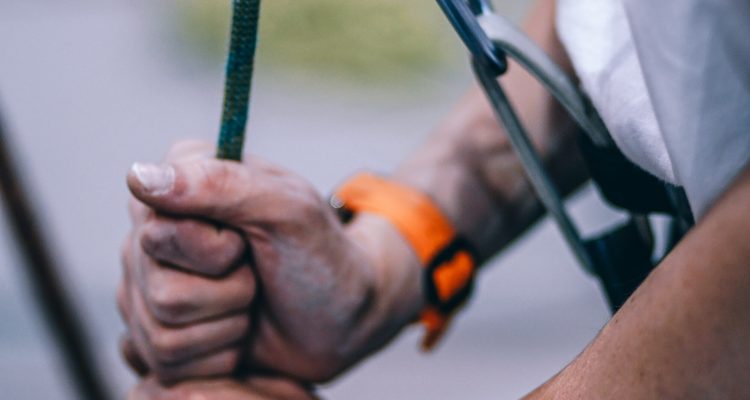As an 18-year-old freshman in college, I learned to rock climb.
Steve was the experienced climber with all the equipment. Brad and I were the cocky friends who were ecstatic to learn the ropes of climbing. These lessons quickly turned into metaphors for ministry life.
Accountability and Rock Climbing
Though eager to jump into the comfortable and stylish harnesses and start scaling the rockface, Steve let us know it would be quite some time before we’d be able to clip in and climb up. We started with lessons about firm grips and spotting each other—not what we had hoped for but exactly what we needed.
Accountability is a loaded word: It’s not usually what we want but often precisely what we need to survive and thrive. Being held accountable may conjure up fears of being watched or judged, or it could be a wonderful invitation and opportunity to be known, loved and carefully guided.
We'll be better #stumin workers if we surround ourselves with people who really know us. Click To TweetWe’ll be better youth workers if we surround ourselves with people who really know us and help us discern the best paths to take with our gifts and calling.
Bouldering
Having learned handholds and spotting, it was finally time to take to the rock. Instead of the 100-foot rockface peppered with bolts for our carabineers, we started on the 10-foot tall boulder that we’d use to practice sidestepping, various holds and spotting.
Though elementary, the simple skills we learned while bouldering provided the foundation of trust needed for our tougher challenges ahead. Brad learned the best way to encourage me. I discovered how to guide and direct the person I spotted.
Accountability in ministry may seem to be a no-brainer. Many recognize the need (outside perspective, encouragement, etc.), but we don’t often practice the elementary things that build trust for the tougher challenges ahead.
Don’t Climb Alone!
“In the spring, at the time when kings go off to war…” (2 Sam. 11:1). Thus begins the story of King David’s most famous fall. David was king. He should have been off to war. He chose to stay at home.
Steve was teaching me a few techniques, and Brad got carried away while bouldering. Long story short, we found him unspotted, unharnessed and 15 feet up on the side of a 22-foot boulder.
Unfortunately, as his muscles grew tired and down-climbing was deemed impossible, Brad slipped off the rock. His 200-pound frame crashed to earth as we did our best to soften his fall. Sometimes, that’s all a spotter can do.
In 2 Samuel 12, David’s solo climb was discovered, and his fall ensued.
You and I are not meant to do ministry on our own. At times, accountability helps us avert crises, but I believe its primary purpose is far greater—to help us thrive and flourish as we become more known by others.
On Belay
“On belay,” I called out.
“Belay on!” Brad replied.
As I attacked the 40-foot face, I had the utmost confidence in my equipment, my skill and my partners. Steve called out encouragement, Brad paid close attention to my moves and gave rope support as needed.
Steve encouraged me to risk.
Brad identified obstacles ahead.
I’m no longer talking about rock climbing. These guys knew me. Steve also was studying to become a youth pastor. He encouraged me to spend more time with my students and speak boldly into their lives. Brad spoke into my relationships with others: asking good questions, checking my motives, warning me of potential pitfalls.
Harnessing Accountability
As we all work to navigate ministry life, we must remember that if we don’t have someone, we need to find someone! Don’t climb alone! Finding accountability could be as simple as finding a network or starting with a cup of coffee with another area ministry leader. Look to start small (grow in vulnerability), be intentional in your encouragement and ask how you can best support each other.
“On belay!”
“Belay on!”

